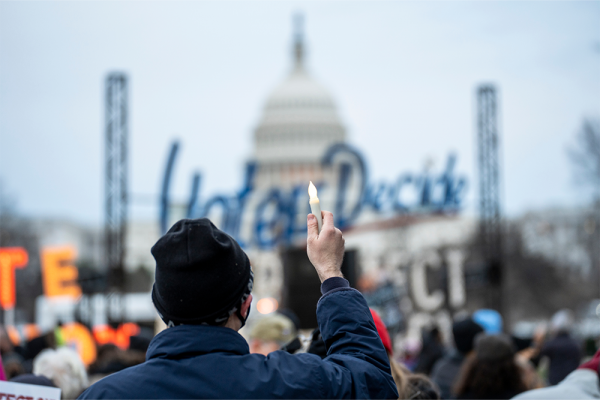Jan 7, 2022
A year after the Jan. 6, 2021 attack on the U.S. Capitol, the District of Columbia remained largely silent. President Joe Biden gave a speech condemning the attack, Democratic members of Congress led remembrances, and different groups held vigils near the Capitol; a small group held a vigil in protest to the incarceration of those who participated in the Jan. 6 attack.
Read the Full Article

Already a subscriber? Login
